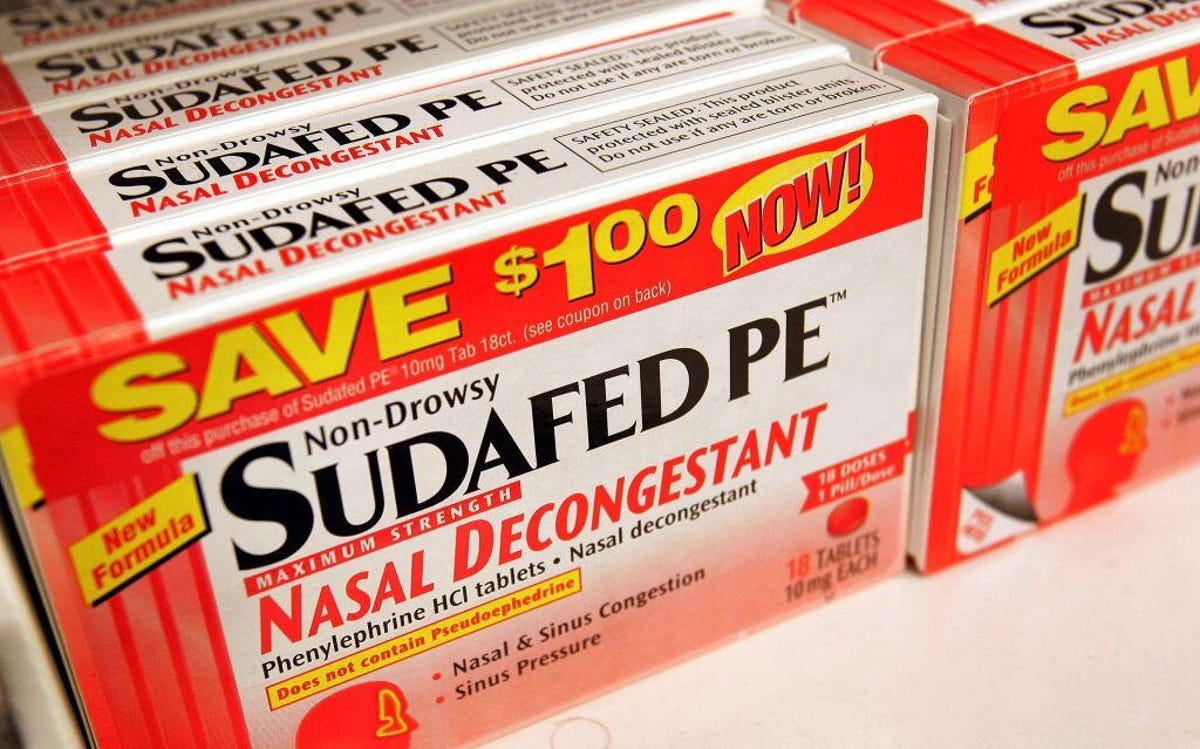This may not be the news you want to hear before the virus season. A committee advising the US Food and Drug Administration (FDA) has stated that commonly used oral and cold medicines do not effectively clear nasal congestion.
However, this does not mean that these medications are unsafe or ineffective in other ways. Nasal sprays containing phenylephrine, which are administered differently, or blood thinners that use a different substance, are not affected by this advisory. The FDA may revise its regulations concerning generic drugs, leading drug manufacturers to reformulate their products without phenylephrine while preserving other active ingredients. This could result in shortages of over-the-counter remedies such as NyQuil and Mucinex that contain phenylephrine.
Many people rely on over-the-counter medications to relieve symptoms or treat seasonal allergies. These medications provide quick relief and are an important part of treatment, according to Dr. Geoffrey Rutledge, MD, the chief medical officer and co-founder of telemedicine site HealthTap.
Phenylephrine-containing medications often contain other active ingredients that alleviate symptoms other than nasal congestion. However, Rutledge notes that phenylephrine is not as effective as its over-the-counter counterpart, pseudoephedrine. As a result, he suggests using pseudoephedrine or seeking alternative treatments for congestion and allergies.
What is phenylephrine?
Phenylephrine is a decongestant that works by narrowing blood vessels in the nasal passages. It is found in popular medications such as Sudafed PE, Theraflu, Tylenol Sinus, Advil Congestion, and NyQuil Severe Cold and Flu medicine. These medications are available over the counter and are used to treat various symptoms in addition to nasal congestion.
Pseudoephedrine: A more effective alternative
Pseudoephedrine is an oral decongestant that works in a similar way to phenylephrine. Studies have consistently shown that it is more effective than phenylephrine, according to Dr. Stacia Woodcock, a pharmacist and pharmacy editor at GoodRx. However, pseudoephedrine is subject to restrictions due to its potential use in the production of methamphetamine. Therefore, many cough and cold medicine manufacturers turned to phenylephrine as an alternative.
Despite the ineffectiveness of phenylephrine, it is still worthwhile to continue using medications containing this ingredient if they provide relief. These medications may still offer benefits due to the other active ingredients they contain. For example, Nyquil contains phenylephrine as well as ingredients that reduce fever, relieve pain, and suppress coughing. The placebo effect and other ingredients can contribute to a perceived improvement in symptoms.
The FDA committee found evidence that phenylephrine is no more effective than a placebo, but Dr. Rutledge emphasizes that the placebo effect can still have measurable benefits. Patients who believe in the effectiveness of their medications are more likely to see improved outcomes and adhere to their treatment regimen.
Alternatives to oral decongestants
Nasal sprays containing phenylephrine are still considered effective because they directly target the source of congestion and are better absorbed by the body. These sprays may also contain oxymetazoline. However, prolonged use of nasal sprays can lead to dependency and rebound congestion. For a more effective option, Dr. Rutledge recommends using pseudoephedrine. Common side effects may include tremors or restlessness.
For allergy-related congestion, Dr. Rutledge suggests considering alternative treatments. Nasal-inhaled steroids like Flonase are suitable for long-term use by allergy sufferers as they suppress the nasal defense system rather than treating symptoms. Antihistamines can also be used for allergies, but Dr. Rutledge notes that they are not decongestants. Antihistamines work by blocking the effects of histamine, a substance produced by the body in response to allergies. Taking an antihistamine can help determine if the symptoms are due to allergies or a viral infection.














